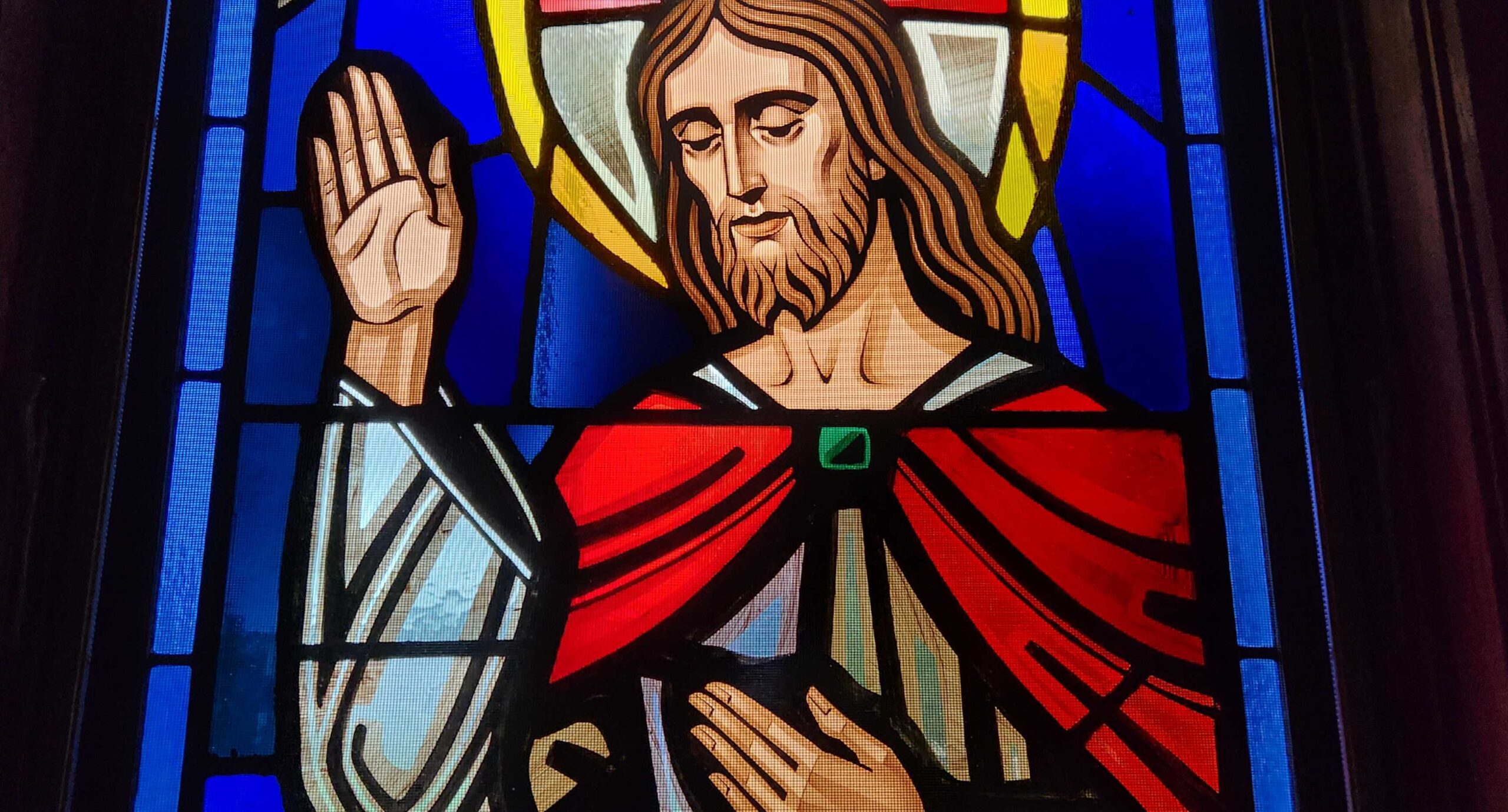This essay first appeared in our weekly newsletter on July 20, 2024.
Often in the Gospels you will read (or hear, if you’re at Mass) that Jesus, upon seeing someone in need, was “moved with pity.” That happens in this Sunday’s Gospel, when Jesus encounters a large crowd who seem like “sheep without a shepherd.”
It’s ironic that he feels compassion for them, since this same crowd has just, according to Mark’s Gospel, prevented Jesus and his disciples from getting some rest. Just a few lines before, he tells the disciples, “Come away by yourselves to a deserted place and rest for a while.” But the crowds find out where they’re going, follow them and foil their plans for a little break.
In such situations, many of us might be annoyed or even angry. But Jesus is not disturbed by this. Quite the opposite: His focus is on the crowd. And the way his strong emotions are described varies from translation to translation. Some English-language Bibles say that Jesus “had compassion on them.”
We shouldn’t downplay how God can work through our guts.
The Greek word used is more vivid, and it’s an important one to help us understand Jesus. It is a form of the word splanchnon, a noun that means one’s inner parts or, more colloquially, one’s guts. This was the seat of emotions in the Hellenistic world, and the Gospels use it to describe the visceral feeling that Jesus has when he sees someone in need.
We shouldn’t downplay how God can work through our guts. In English, we talk about having a “gut feeling” about something, usually a course of action that is very right or very wrong. It’s a roundabout way of talking about our conscience. And we use variations of the term to describe what happens when we see, say, a friend treated unjustly: “It turned my stomach to see her treated that way.”
The invitation is to feel this way about all situations of need, injustice or tragedy. Now we can’t go around 24/7 with our stomachs tied up in knots (even Jesus and the disciples needed a break), but the opposite is just as true: we can’t ignore injustices and sadnesses simply because they disturb us.
That includes the suffering of people, and groups of people, we don’t know: those who are poor, those who are homeless, those who are migrants or refugees. How many times have you heard people say, “I can’t watch the news. There’s just too much suffering”?
We can’t ignore injustices and sadnesses simply because they disturb us.
But Jesus asks us not to turn away, not to suppress the feelings of our splanchnon.
Because this is how God moves us to act. “Compassion is the bridge from sympathy to action,” says the Sacra Pagina commentary on this passage. How else would God move us other than by stirring up our emotions, our heart, our splanchnon? In Jesus’s case, his compassion moves him to feed the crowd, with the miraculous multiplication of the loaves and fishes.
So the next time you see a poor person being ignored, an elderly person being shunted aside or an LGBTQ person being excluded from the church, consult your splanchnon. And act.



